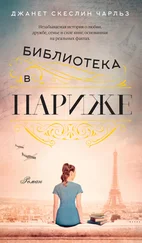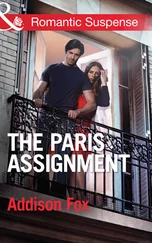Boris laughed. “Better you than me.”
The back room was bursting with empty crates and jumbles of books. “Safe journey,” I said to a hardcover as I placed it in the crate for the American College of Tehran, Persia; another went to the Seaman’s Institute in Italy; a third, fourth, and fifth would travel together to Turkey. I kept on for what seemed like hours, but when I consulted the clock, only ten minutes had gone by. It would be an endless, lonely afternoon.
There was a rap at the door. “I asked the man at the front desk where you’d disappeared to, and he sent me up here,” Margaret said.
“I’d love some company. Would you mind lending a hand?” I said, then noticed her pink silk dress. It would be covered in dust if she stayed, and anyway, women in couture didn’t work.
“Why not? I’ve nothing better to do.”
I offered to fetch her daughter, but she said Christina had seemed happy to make friends with Hélène and her father. I showed Margaret how to find the destination for each volume. She weaved between the crates gracefully, packing the books with care. “Bon voyage,” she whispered to each one.
I stared at her.
“You must think I’m crazy for talking to books,” she said.
“Not at all.”
“ ‘Bon voyage’ is the only French I remember from school. My mother was right; I should have worked harder.”
“It’s not too late! I’ll teach you a few phrases. Bon vent means ‘fair wind.’ We say it to wish someone Godspeed or good luck. We say bon courage to give someone courage.”
“ Bon courage !” she told a chemistry manual.
“ Bon vent !” I said to a math primer.
We giggled as we wished the books well.
“What brought you to Paris?”
“My husband is an attaché at the British embassy.”
“A nice circle to be in.”
“It’s rather a vicious circle.” She winced. “Oh, please don’t tell anyone I said that. You can see why I’m not the diplomat.”
Suddenly shy, Margaret went back to sorting books.
“You must attend glamorous events,” I said, hoping she’d tell me about the parties.
“Yesterday, there was tea at the residence of the Dutch ambassador, but I’m having more fun now.”
“How can that be? You must encounter people from all over the world.”
“They’re interested in my husband, not me.” Tears fell down her rouged cheeks. “I miss my mum, miss meeting my friends for tea.”
I didn’t know how to respond. Miss Reeder said foreigners often felt homesick in Paris and that staff could ease feelings of loneliness.
“I didn’t mean for this to happen.” Margaret dabbed her tears. “My mum calls me ‘the teapot with a leaky spout.’ ”
“She’ll soon call you la Parisienne .” I put the lid on the last crate. “You were a big help.”
“Truly?”
“You should volunteer here.”
“I haven’t any training. What if I make a mistake?”
“It’s a library, not a surgery! No one will die if you put a book in the wrong place.”
“I’m not sure—”
“You’ll make new friends, and I’ll teach you French.”
I accompanied Margaret to the courtyard, where her daughter was playing with Hélène. A shadowy dusk fell over the city and crept over the wall, onto the lawn, past the ivy in the urn, toward the Library. Darkness could come only so close—the lamps in the reading room shone brightly. Through the window, Margaret and I saw Madame Simon glance about furtively before taking a poodle from her purse. Placing him on her lap, she and Professor Cohen rubbed his belly. Engrossed in their own happiness, they didn’t notice Boris and his wife, Anna, in the corner, dark heads tilted together. The two never touched, but a tender love radiated from them. Bony finger at her mouth, stern Mrs. Turnbull shushed some students. Poor Peter-the-shelver dove into the stacks to avoid the matron who tracked him like prey. Observing him, our bookkeeper covered her mouth to muffle her laughter.
There was a longing in Margaret’s gaze as she watched the unfolding scenes. Something told me she needed the Library. Something told me the Library needed her. Over dusty books, our conversation had flowed like the Seine. I hoped more than anything that Margaret would join our cast.
CHAPTER 9
Odile
PARIS, JUNE–JULY 1939
IT WAS EXAM WEEK, and the tables were full, all but one spot taken. Monsieur Grosjean, in his tangerine earmuffs, planted himself in the middle of the reading room. Observing him, Boris and I braced ourselves. “What’s our irregular regular going to do?” he asked me.
“ ‘Call me Ishmael,’ ” Monsieur began to read aloud. “ ‘Some years ago—never mind how long precisely—having little or no money in my purse, and nothing particular to interest me on shore, I thought I would sail about a little and see the watery part of the world.…’ ” When Boris pointed to the empty chair and invited him to read quietly to himself , Monsieur replied, “I’ll be damned before I sit by those perfumed Jews.”
Miss Reeder approached, lips pinched in a frown. It was the first time I’d seen her angry. Monsieur took a step back. “I’ll get to you in a moment,” she said tersely. The Directress gathered the young women—students of the Sorbonne—and apologized, promising they’d be able to study in peace. She admonished M. Grosjean, telling him, “There’s no place in this library for that kind of talk.”
“I’m saying what others are thinking,” he muttered.
“Think again,” she said.
“Don’t tell me what to do!” Monsieur waved his hand, nearly hitting her.
Boris gripped M. Grosjean’s arm and escorted him to the door. In his sweater vest and tie, Boris was surprisingly proficient in the role of bouncer.
“I wanted to read out the passage about the ‘damp, drizzly November in my soul’!”
“What soul?” Boris said.
“Unhand me—”
“You’re not a victim,” Boris said as he forced Monsieur outside. “You’re an unpleasant man who’s offended a great many people. Say another syllable, and I’ll make sure you never return.”
Miss Reeder soothed the subscribers upset by the outburst; I decided to check on Boris. I found him at the far end of the courtyard, near the crimson roses that the caretaker spoke to as though they were his children. Boris leaned against the wall, a Gitane clenched between his fingers.
“Ça va?”
He didn’t answer; I leaned against the wall, too, and we watched the smoke unfurl and rise.
“After the Revolution, I was forced to say goodbye to my country,” he said. “It was painful to leave, but my brother and I believed that in coming here, we’d be in a better, smarter place. Isn’t France the country of the Enlightenment? In Russia, many people were killed in pogroms. Our neighbor was killed, just for being a Jew. So when I hear talk like that…”
“I’m sorry.”
“I guess hatred is everywhere.” He took a drag on his cigarette; when he blew out the smoke, it seemed like a sigh. “Even in our Library.”
PAPA HAD BEEN right—working with the public could be demoralizing. On the bus ride home, I plunged into the pages of my faithful friend, 813, Their Eyes Were Watching God , and turned toward the window to capture the faint light. She knew things that nobody had ever told her. For instance, the words of the trees and the wind. She often spoke to falling seeds and said, “Ah hope you fall on soft ground,” because she had heard seeds saying that to each other as they passed. She knew the world was a stallion rolling in the blue pasture of ether. She knew that God tore down the old world every evening and built a new one by sun-up. It was wonderful to see it take form with the sun and emerge from the gray dust of its making. The familiar things and people had failed her so she hung over the gate and looked up the road towards way off. When the bus screeched to a stop at a red light, I fell out of my book.
Читать дальше
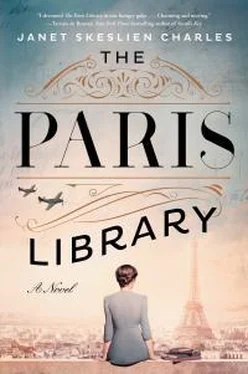
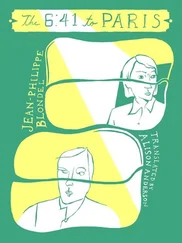

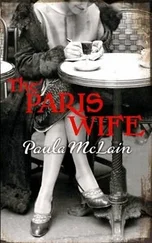


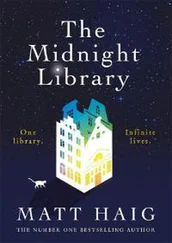
![Джанет Скеслин Чарльз - Библиотека в Париже [litres]](/books/391555/dzhanet-skeslin-charlz-biblioteka-v-parizhe-litres-thumb.webp)
